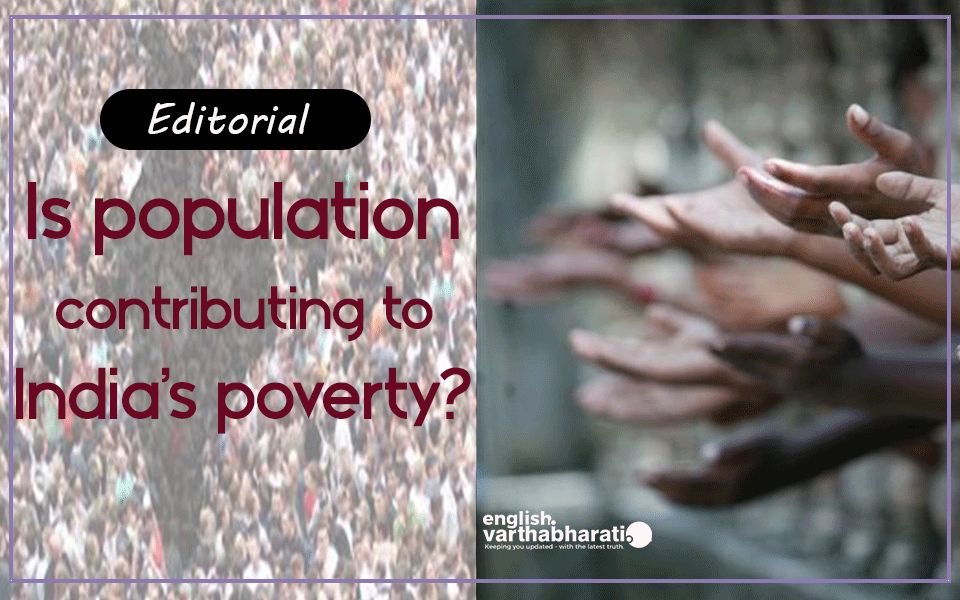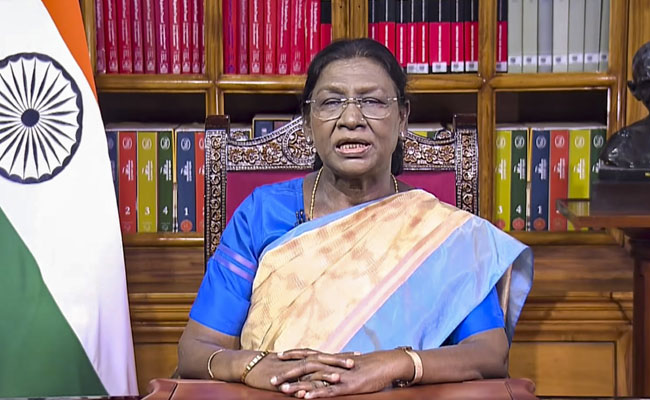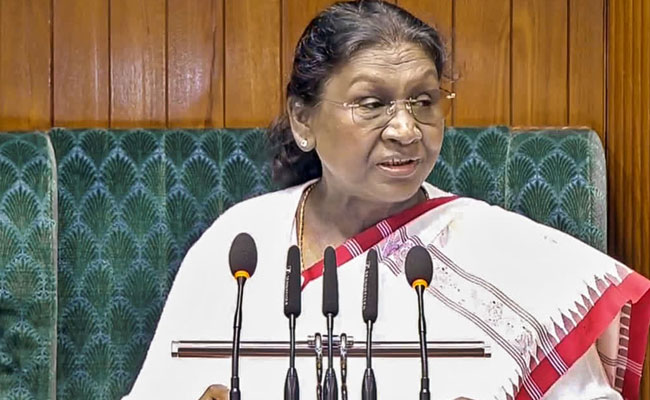Recently, the industrialist and self-proclaimed godman Baba Ramdev said those with more than two children should be denied rights to vote. We are living in times where people speak about things that never relate to them. Politicians speak about science and sanyasis speak about economics. Baba Ramdev’s talk is the continuation of such trend.
According to him, increased population has contributed to the poverty of the country. This is an old theory. A country like China is facing an acute problem of deluge of aged persons owing to one child policy. Hence, the family planning policy has taken a backseat now.
In a country like India, population is a resource, and people are not suffering owing to the lack of it. Instead, the concentration of financial resources owing to Ambani, Adani, Ramdev etc has led to the country’s majority population living in poverty.
If he is really serious about poverty, Ramdev should talk about improper sharing of resources where the wealth lies in the hands of some rich people. That would suit the perspective of a sadhu such as Ramdev. But, Ramdev being an industrialist, he has amassed huge amount of wealth and resources to himself. Expecting him to speak on even distribution of resources is really foolish.
Are we really a poor country? Last year, an additional Rs 2200 crore worth property was amassed by the crorepatis of the country. While the one percent rich category increased its wealth by 39%, that population in the lowest order of hierarchy saw an increase of only three percent. This is according to the Oxfam report.
Since 2004, the poorest of the poor which is about 10% or 13.6 crore Indians, are still reeling under debts. While the poor struggle to feed their children and buy them medicines, a few affluent people are usurping the resources of the country. This leads to widespread anger, as Winnie Byanyima – the Oxfam International Executive Director.
She has even cautioned that this aversive uneven distribution of resources can cause serious damage to social and democratic setup of the country.
But unfortunately, people like Baba Ramdev are pointing fingers at increasing population and trying to slip out of their role in contributing to the concentration of wealth. About 10% of India’s population holds 77.4% wealth of the nation. The richest of the rich, in the top order has 51.53% of the national wealth. The 60% of the lower strata of the population holds just 4.8% of the national wealth.
About nine richest persons in India hold wealth that is equivalent to 50% of the wealth distributed among people from the lowest strata. Between 2018 and 22, the country will produce about 70 new crorepatis. With them, the number of poor will also increase. The report has said the governments often contribute to this menace by reducing the budgetary allocation to health and education of the poor, and reduce the taxes for the rich while increasing the cap on loans doled out to them. This leads to the widening of the gulf between the rich and the poor. Last year about 18 new crorepatis entered the list of privileged rich in the country.
India now has 119 crorepatis. The estimated value of their total assets stands at 400 billion dollars (Rs 28,00,000 crore)
This has been the highest annual increase in the last decade since 2008, with wealth in 2018 increasing up to $ 440.1 bn from $ 325.5 bn in 2017.
By increasing a mere 0.5% of taxes on the assets of the rich, India can cover nearly 50% of the budgetary allocation by the government for health. But then these are high hopes since the corporate forces are the ones that are running the government. So them allowing this hike in taxes is a very far thought.
The corporates are fleeing from the country after fleecing the Indian banks which hold the money saved by the middle class with their hard earnings. The country is busy hiking the tax limit for the middle class instead of taxing the rich. If only the resources concentrated among the few rich is disseminated among the poor, the picture would be different. The population should be turned into human resource. Instead of that, a self-proclaimed god man speaking against the unborn children would be the highest form of hypocrisy.
Let the Truth be known. If you read VB and like VB, please be a VB Supporter and Help us deliver the Truth to one and all.
New Delhi (PTI): President Droupadi Murmu on Wednesday said the world saw the valour of Indian armed forces through Operation Sindoor when they destroyed terror camps on the strength of their own resources and asserted that any terror act will be responded with decisive action.
"India has proved that power can be used with responsibility and wisdom. The world has seen the valour and courage of Indian armed forces through Operation Sindoor," Murmu said in her address to both Houses of Parliament, marking the beginning of the Budget Session.
"Our nation, on the strength of our own resources, destroyed terror camps. My government sent a message that any act of terror will be responded to with resolute and decisive action," the President said, amid thumping of desks by Prime Minister Narendra Modi and other parliamentarians.
Murmu said the suspension of the Indus Water Treaty was part of India's fight against terror.
"We are also working on Mission Sudarshan Chakra to further strengthen national security," the President said, adding that security forces have also taken decisive action against Maoist terror.
Following Operation Sindoor, she said, the trust on Indian defence platforms has increased.
Murmu further said her government was committed to social justice in the country.
In the third term of the government, she said, work is being done to further empower the poor, and social security benefits are available to nearly 95 crore citizens now.
"My government is committed to true social justice," she said, adding that 25 crore Indians moved out of poverty in the last 10 years.
The President also said the government has been successful in tackling corruption and scams, and ensuring proper use of public funds.
"For India, the end of the first 25 years of this century has been filled with several successes, proud achievements and extraordinary experiences. In the last 10-11 years, India has strengthened its foundation in every sector," she said.
Lauding India's celebration of the 350th martyrdom day of the ninth Sikh guru, Guru Tegh Bahadur, and the country's tribute to revered tribal leader and freedom fighter Birsa Munda on his 150th birth anniversary, Murmu said, "when the country remembers the contribution of its ancestors, the new generation gets inspiration, which further speeds up our journey towards Viksit Bharat (Developed India)."
"The country celebrated the 350th Shaheedi Diwas of Sri Guru Tegh Bahadur Ji. During the 150th birth anniversary of Birsa Munda, the entire country paid him tribute and remembered his contribution to the tribal community," the President said.
"The events related to the 150th birth anniversary of Sardar Vallabhbhai Patel further strengthened the sense of Ek Bharat, Shresht Bharat (One India, Best India). The entire country became witness to how Bharat Ratna Bhupen Hazarika's birth anniversary celebrations filled the country with music and a sense of unity," Murmu said.
The President's mention of the Viksit Bharat – Guarantee for Rozgar and Ajeevika Mission (Gramin) (VB-G RAM G) scheme was met with loud protests from the Opposition benches.
Murmu said the VB-G RAM G initiative would provide guarantee for 125 days of work, would stop corruption and leakages, and provide a new impetus to rural development.
The Opposition members raised slogans demanding its rollback, even as the treasury benches thumped their desk in support of the scheme.
The President had to take a brief pause amid opposition cries of "vapas lo" (roll back) against the Act that replaced the Mahatma Gandhi National Rural Employment Guarantee Act (MGNREGA).
The Opposition parties have been demanding withdrawal of the VB-G RAM G Act and restoration of MGNREGA as a rights-based law in its original form, the right to work and the authority of panchayats.
The government has, meanwhile, claimed that the new Act will further strengthen the guarantee for rural employment.





